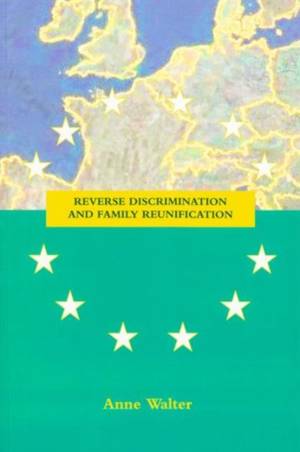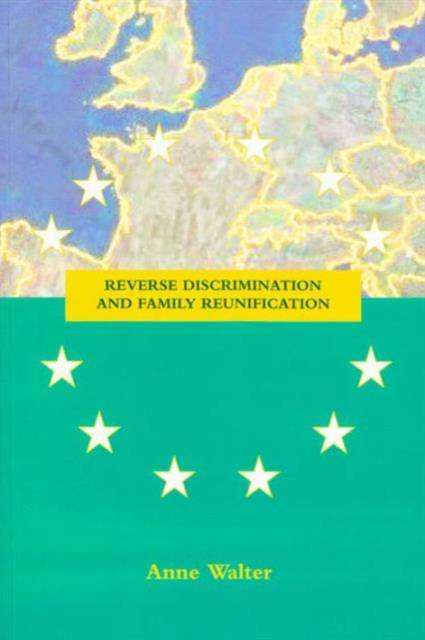
- Afhalen na 1 uur in een winkel met voorraad
- Gratis thuislevering in België vanaf € 30
- Ruim aanbod met 7 miljoen producten
- Afhalen na 1 uur in een winkel met voorraad
- Gratis thuislevering in België vanaf € 30
- Ruim aanbod met 7 miljoen producten
Zoeken
Omschrijving
This study has been presented at a conference in October 2008 in Osnabruck. Introduction So-called reverse discrimination occurs when EU Member States treat their own nationals less favourably than nationals of other Member States in situations where Community law applies. This phenomenon (discrimination of nationals or in German Inlanderdiskriminierung) signifies that (in reverse) nationals and not foreigners are discriminated against. The term 'EU citizen' in this study describes mobile EU nationals exercising their freedom of movement rights. This phenomenon, known in various areas of European law and sometimes leading to odd results, is defined differently from a European or national law perspective. Reverse discrimination is primarily understood to be the result of the limited scope of Community law. In cases with a person- or content-related link to EC law the special prohibition of discrimination based on nationality under Article 12 EC is applicable. The description of what is a 'matter of Community law' acts at the same time as a boundary to what falls under a national approach. Cases without such a link to Community law, on the other hand are called 'purely internal situation'. These cases are treated solely under national law of the Member States, and can differ from the solution under Community law. Reverse discrimination therefore pertains to an interface between Community law and national law, and hence the fundamental questions - scope and mode of operation - are related to the concept of Community law and raise the question of its objectives. Since the latter are not static in a European Union built on development, the phenomenon is simultaneously accorded a temporary character: Reverse discrimination is clearly impossible in the long run within a true internal market, which must of necessity be based on the principle of equal treatment. Such discrimination must be eliminated [by means of the harmonisation of legislation]. Up to this point, national law is applicable and reverse discrimination is outside the scope of Community law, especially Article 12 EC. From a national perspective, it is consequentially left to national law to solve the problem of reverse discrimination - possibly by adjusting it to Community law.
Specificaties
Betrokkenen
- Auteur(s):
- Uitgeverij:
Inhoud
- Aantal bladzijden:
- 74
- Taal:
- Engels
Eigenschappen
- Productcode (EAN):
- 9789058503862
- Verschijningsdatum:
- 1/07/2008
- Uitvoering:
- Paperback
- Formaat:
- Trade paperback (VS)
- Gewicht:
- 172 g

Alleen bij Standaard Boekhandel
+ 44 punten op je klantenkaart van Standaard Boekhandel
Beoordelingen
We publiceren alleen reviews die voldoen aan de voorwaarden voor reviews. Bekijk onze voorwaarden voor reviews.











